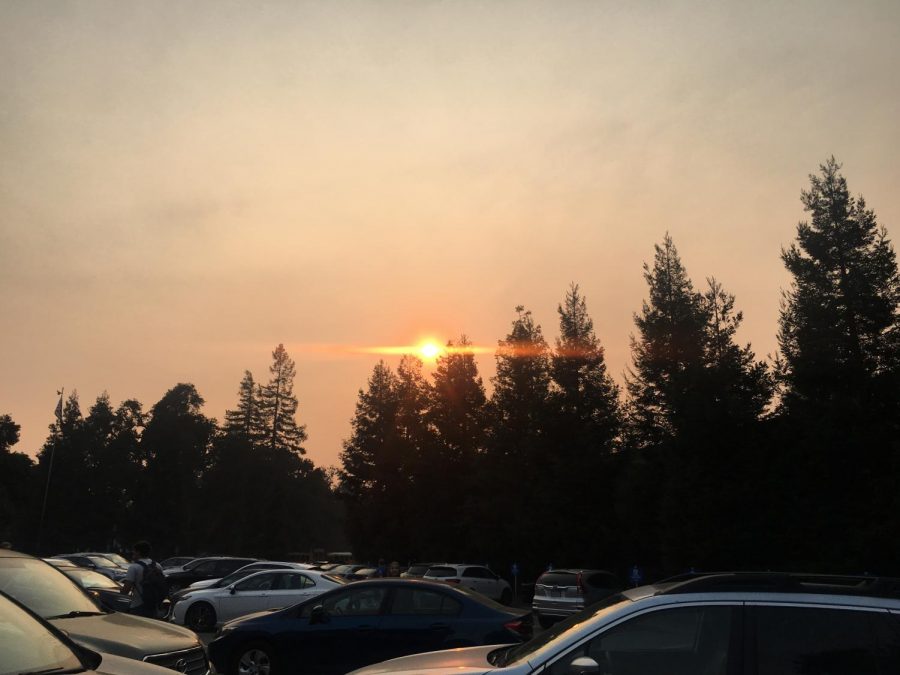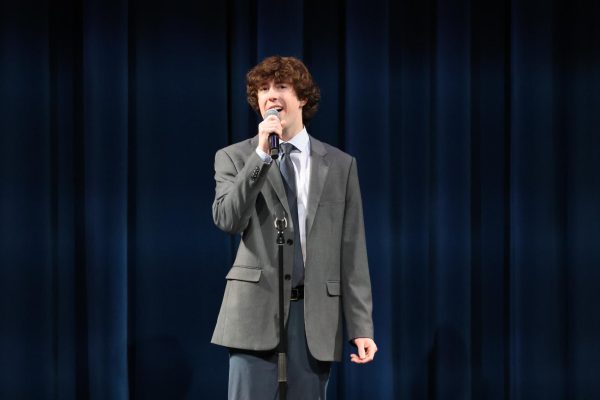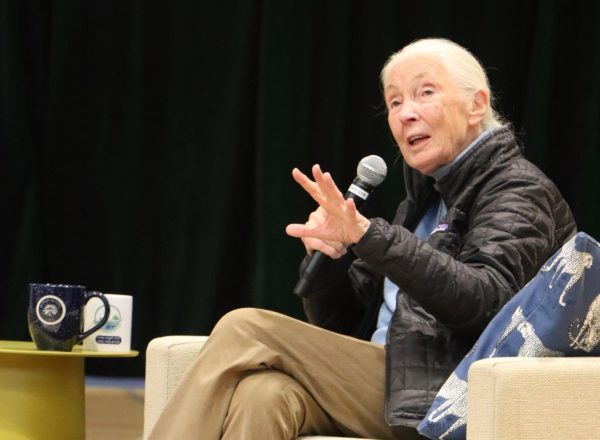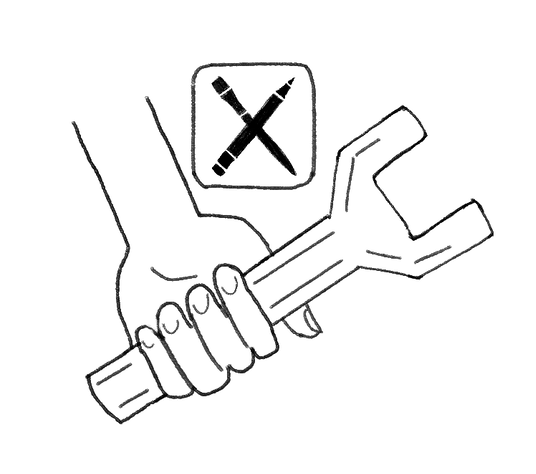Effects of the California Fires
Smoke from the Camp Fire has reduced air quality to an unhealthy level in the Bay Area. Staff Photo: Clara Guthrie.
November 14, 2018
For the past two weeks, the Camp, Hill and Woolsey fires have ravaged California displacing tens of thousands, killing nearly 50 people, and leaving nearly 200 people missing. The Hill Fire is nearly 90% contained in Ventura County, but the Woolsey fire burning west of Los Angeles and the Camp Fire burning in Northern California are both still unchecked, with both sitting around 30% containment according to local fire officials. On November 12th, an additional 13 sets of human remains were discovered by firefighters in the area destroyed by the Camp Fire, making the blazes in Northern California the deadliest in the state’s history. According to CNN, dry vegetation and low humidity allowed parts of the inferno to consume the area of a football field every second. The three fires have destroyed about 225,000 combined acres, more than the total acreage of New York City.
Natural winds have blanketed the Bay Area with smoke from the northernmost Camp Fire, reducing air quality to conditions comparable or worse than the most polluted places on earth, such as Delhi and Beijing for most of last week. Air conditions up and down the peninsula ranged from unhealthy for sensitive groups (101-150 AQI, or air quality index, a measure of air quality ranging from 0-500) to unhealthy (151-200 AQI). This unhealthy air has proven to be a challenge for local teams, including Menlo, that are competing in CCS playoffs and finals. The CCS cross country finals was scheduled to be run on Nov. 10th, but the air conditions forced two rechedules. The finals are now scheduled for Nov. 17th. The smoke has created uncertainty for those running, such as junior Charlotte Tomkinson. “Having CCS be moved to Monday, and then not knowing if we would actually be running on Monday or next Saturday was definitely not ideal,” Tomkinson said. “We were all a little bit on edge because the prep you do for a race the day before is very different from what you do a week out, so no one really knew what we should be doing.”
Cross country isn’t the only sport directly impacted by the poor air quality; football California Interscholastic Federation (CIF) CCS playoff games have also been postponed until conditions improve. “We’re still playing despite the smoke, and especially now that its playoffs it’s even more important that we stay locked in,” a Menlo-Atherton senior on the football team said. “[…] It’s hard to do that when we’ve been practicing for the same team for two weeks. It’s just so difficult to stay engaged and hyped for the game when we don’t even know when it’s happening and when our practices aren’t even real.” Menlo boys water polo has also struggled with the smoke recently as they prepare for NorCal. Pool time is limited according to sophomore Leo Jergovic, and it’s unclear whether the tournament this weekend will be pushed back.
On Nov. 12, President Trump took to Twitter to deliver a scathing criticism of the state’s forest management. Pointing out the fact that, despite the billion dollar budget, lives were still being lost, Trump threatened to cut federal spending if the “gross mismanagement” wasn’t remedied. The comments attracted flak from celebrities, politicians and firefighters alike. “His comments are reckless and insulting to the firefighters and people being affected,” said Harold Schaitberger, president of the International Association of Fire Fighters. This sentiment was echoed Saturday by singer songwriter Katy Perry on her twitter: “This is an absolutely heartless response. There aren’t even politics involved. Just good American families losing their homes as you tweet, evacuating into shelters.”
As of Nov. 13 the fires continue to burn. Homes are still being destroyed and some Californians are still losing it all. But all across the nation, companies are pooling their resources to aid those impacted by the blazes in any way possible, and individuals are generously donating to relief efforts. Google, Microsoft, the Red Cross, Apple, FEMA and dozens of others are aiding firefighters and survivors alike in their struggle against the fires. It’s unclear exactly when this disaster will end, but until it does, Americans are stepping up in any way possible.













